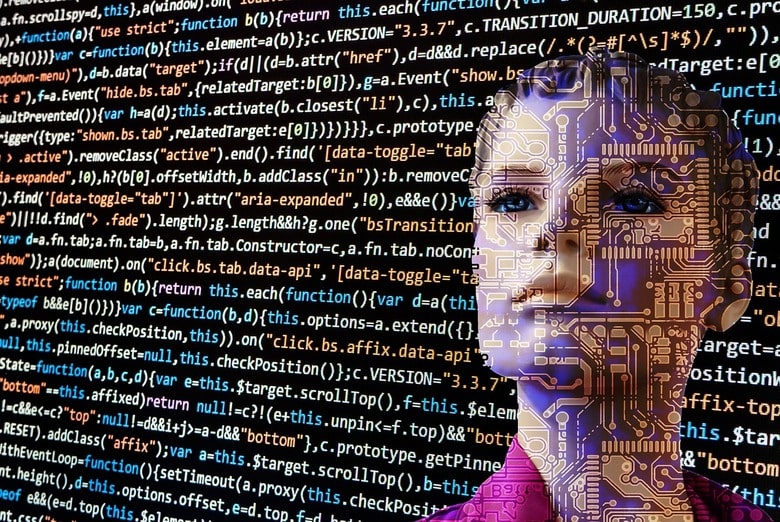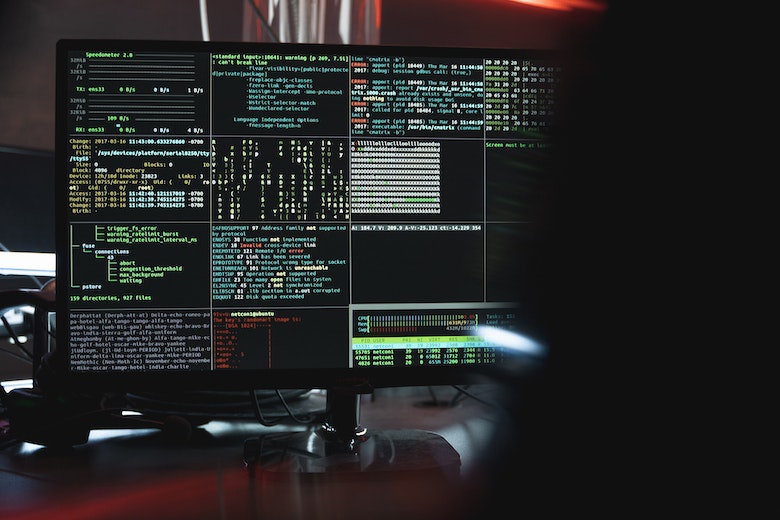Table of Contents
Introduction
The cyber attack surface in the modern business environment is large and continues to grow rapidly. Cybersecurity professionals face an unprecedented threat environment, with a record number of attacks, shortages of skilled personnel, and increased aggression and sophistication from national actors. This indicates that analyzing and improving a company’s cybersecurity needs more than just human involvement. For many data center protection administrators, artificial intelligence is the panacea for all of these issues.
Artificial intelligence and machine learning are now central to information security due to their ability to rapidly analyze millions of data sets and track a wide range of cyber threats, from malware threats to obscure threats that can lead to phishing attacks. It guarantees to permit security teams to manage more threats than ever before, of more noteworthy complexity than ever, with fewer and fewer people.
Artificial intelligence is quickly becoming a top concern for improving the efficacy of IT security teams. The top courses on cybersecurity provide IT professionals with a good understanding of computer networks and in-depth knowledge.
The use of machine learning in the field of cybersecurity is spreading. Its applications include classification algorithms to detect malware and spam, anomaly detection algorithms to detect malicious traffic or user behavior, and related algorithms for multi-system signal delivery.
Let’s take a look at how AI is changing cybersecurity, its applications, and its challenges.

What is Artificial Intelligence?
In today’s world, technology is evolving very rapidly, and we are exposed to different new technologies day by day. Artificial intelligence is one of the booming processing technologies in this area and is prepared to usher in a new era by building intelligent devices. Artificial intelligence is now everywhere around us. The term artificial intelligence was coined in 1956 but is more popular today due to the increasing volume of data, advanced algorithms, and advancements in computing power and storage.
Artificial intelligence is the ability of computer programs to learn and think. Artificial intelligence and machine learning are now becoming important components of information security. These technologies allow you to quickly analyze millions of data sets and track a wide range of cyber threats, from malware to suspicious activity that can lead to phishing attacks. These techniques allow computers to be programmed to carry out particular tasks by processing vast amounts of data and identifying patterns in the data. If your organization is looking to enhance its capabilities in this rapidly evolving field, consider the need to hire machine learning engineers.
What is Cyber Security?
Cybersecurity is defined as the assistive technique of guarding online systems, programs, and networks against digital attacks. It can be described as a set of practices, technologies, and processes that help protect the confidentiality, integrity, and availability of computer systems, networks, and information from cyberattacks or unauthorized access. It aims to lessen the possibility of cyberattacks and stop the unauthorized use of systems, networks, and technologies.
These cyber assaults are often performed to edit/delete any sensitive information, gain unauthorized access, extort money from users, or disrupt corporate or government activities.
In today’s digital world, cybersecurity cannot be ignored. Protecting all organizational assets from external and internal threats and disruptions brought on by natural disasters is one of cybersecurity’s main objectives. Due to the prevalence of smartphones, computers, and the internet in modern life, cybersecurity is crucial.
It’s hard to imagine how you can get along without your smartphone. From online banking and shopping to email and social media, it’s more important than ever to take steps to prevent cybercriminals from gaining access to your accounts, data, and devices.
A single security breach could expose the personal information of millions of people. These breaches had serious financial consequences for the company, as well as a loss of trust among customers.
Impact of Artificial Intelligence on Cyber Security
1. Faster Detection and Response Times
Artificial intelligence can speed up the recognition of real problems, quickly cross-checking different sources of security and prevention information. Human digital security experts will take steps according to the needs of the processing stages. However, it can also be supported by AI frameworks, which in turn suggest plans to improve the response.
2. Network Security
Two important elements of system security are the development of a security strategy and the geographic definition of connected systems. In general, both of these exercises are very tiring. We can accelerate this process by using AI to observe and study system traffic patterns and recommend security measures. This is not only free time but also a lot of effort and means that we can apply to the rather mechanical course of events and the moving sphere.
3. Phishing Detection & its Prevention

One of the most popular digital assault methods is phishing, in which programmers try to spread their payload through the baiting approach. But fortunately, ML-AI can play an important role in deflecting & stopping phishing attacks. AI can detect the most common sources of phishing and report them to the system to prepare to counter them.
More than 10,000 dynamic phishing sources can be tracked and identified by ML Computational Intelligence, and it can respond to and correct problems considerably more quickly than people. In addition, AI-ML works to filter out phishing threats from around the world. There is no limit to phishing attempts against any particular geographic territory. It is now feasible to distinguish between a legitimate website from a bogus one rapidly, thanks to computer intelligence.
4. Secure Authentication
Most organizations and individuals still rely on the traditional method of entering login IDs and passwords for authentication purposes. We also can’t deny the fact that there are very few people who are serious about creating a strong and unique password. Also, most people use the same password for all or most of their accounts. Such activities can expose organizations or individuals to serious security risks. However, with new-age, technologically advanced biometric authentication techniques, including iris recognition, fingerprints, or face recognition, login authentication has become highly secure and convenient.
The use of AI in biometrics has ensured that cybercriminals cannot hack them. In addition, the AI can also check various components to determine if a given client has permission to connect to a specific device. The technology analyzes factors such as the way the keys are typed, the speed at which they are typed, and the rate of typing errors.
5. Behavioral Analytics
Another big advantage of Artificial Intelligence in cybersecurity is its ability to analyze behavior. AI can develop a model by accessing the user’s working methods. If malware is introduced into the system, the mode of operation will be changed, and this is when the AI will detect the anomaly and report it to the authorities. Anomalies can be abnormal Internet usage, changes in typing speed, increased background activity, etc.
Artificial intelligence can instantly and easily identify the difference between fake and legitimate sites. It can also analyze fishing patterns based on specific geographic locations. With artificial intelligence, new threats can be quickly identified. However, the incidence of false positives is also increasing. To eliminate the number of false positives, a combination of traditional detection methods and AI behavioral analysis detection should be used.
6. AI in Preventing Online Frauds
Companies must be able to anticipate a digital attack. It has the ability to thwart whatever the enemy tries to achieve. AI is part of artificial intelligence that has proven extremely valuable in recognizing digital hazards. It depends on looking at the information and discriminating the risk before it abuses the impotence in your data frame. AI allows the PC to use and adjust calculations based on the information obtained, leverage that information, and understand the improvements needed. In the context of cybersecurity, this means that AI allows a PC to foresee hazards and track any anomalies with much greater accuracy than any human.
Conventional innovation relies heavily on past information and cannot be as improvised as AI can. In addition, the volume of digital hazards that individuals must manage is very important to everyone. AI handles it in the best way.
Scope of AI in Cybersecurity
At first glance, AI in cybersecurity may seem like a paradox. But it’s the wave of the future that will forever change the way you think about the field. There is no doubt that artificial intelligence holds great scope in the field of cybersecurity. As organizations move data into computer networks and the cloud, the threat of hackers grows. A single successful attack can wreak havoc on an organization.
On the one hand, artificial intelligence in cybersecurity is useful because it enhances the analysis, research, and understanding of cybercrime by security professionals. It improves the cybersecurity technologies that businesses use to fight cybercriminals and helps keep organizations and customers safe. On the other hand, AI can be resource-intensive. This may not work for all applications.
Moreover, it can also serve as a new weapon in the arsenal of cybercriminals who use technology to enhance and enhance their cyberattacks. In fact, the VPN industry also benefits from artificial intelligence. With machine learning, a VPN for all devices can counter the data protection threat posed by artificial intelligence. The Smart Data Collective says machine learning algorithms allow VPNs to protect users from online threats effectively.
The discussion of artificial intelligence in cybersecurity is not new. After all, data is at the heart of cybersecurity trends. And what better way to analyze data than using computers that can think and perform tasks in nanoseconds that would take longer for humans? The future of artificial intelligence in cybersecurity is promising.
Examples of Artificial Intelligence in Cyber Security in the Real World
Vehicle Bomb Detection
Using machine learning and artificial intelligence, UVeye, an Israeli firm, has created a tool that aids security professionals in spotting dangers by scanning the bottom of moving carsThe system employs high-resolution cameras positioned at optimal angles to produce 3D pictures of infractions such as improvised explosive devices, illegal firearms, narcotics, and other questionable objects. According to UVeye, the technology is capable of detecting items that would normally elude the human eye even while a car is traveling at speeds of up to 28 miles per hour.
This is where artificial intelligence and machine learning come into the picture. The system has access to the vast amount of data available, allowing it to track the characteristics of passing vehicles with data provided by manufacturers and compare them in real time with data received from passing vehicles.
According to UVeye, it might take up to three seconds for this technology to establish whether a material is prohibited. The management of vehicle safety may alter as a result of the technology’s applicability to a variety of safety functions. Outside of government facilities, border crossings, power plants, airports, tourist attractions, and other key infrastructure that may be excellent targets for assaults, the technology is used.
Home Security
According to the latest industry data, spending on home security is anticipated to increase to over $75 billion by 2023 from $40.6 billion in 2017. The use of artificial intelligence and machine learning and the rising popularity of IoT-connected devices are primarily responsible for this rise. In reality, AI is transforming home security because it can address one of the main issues that traditional home security solutions face: human error and false positives. One option is Lighthouse AI, a system that employs artificial intelligence to notify you while you’re out and about of people, animals, and other things that could be of interest to you.
With the addition of artificial intelligence, home security cameras are becoming incredibly powerful. Some conventional security systems sound an alarm or alarm when motion is detected. This, of course, can lead to false positives if you or a family member enters the home without authorizing the system to allow people in at certain times.
AI For the Military
The use of artificial intelligence in the military is considerable. Since military technology is replete with cameras, communications, sensors, and data networks that might benefit from AI, there is a natural merger between the two sectors. The potential of humanity to manage massive volumes of data on the contemporary battlefield has turned into a barrier to our power to sway judgment and send information to the most critical locations.
A surveillance system based on artificial intelligence has been created for military personnel by the American company Shield AI. As a result, there are far fewer hazards to soldiers while military forces are exploring potentially dangerous areas like building interiors, caves, and tunnels on the field. In practice, a drone can be ordered to monitor the target environment, and the onboard Machine Learning (ML) technology will help the drone navigate without human intervention.
This is only the beginning. Several defense experts predict that as technology develops decades from now, artificial intelligence will play a bigger part in combat, both on the ground and in the air.
FAQs
How can AI help stop cyber-attacks?
AI uses machine learning and deep learning to recognize patterns on the network and group them together; then, it detects deviations or security issues from the norm before responding. These models can help improve security in the future. Similar potential threats can be found and promptly stopped.
Will AI take cybersecurity jobs?
Artificial intelligence can replace cybersecurity jobs. But there will always be a need for cybersecurity specialists. Existing skill sets will be replaced by new cyber security skill sets. Artificial intelligence will never replace purely human skills like strategic thinking, leadership, and empathy.
What is the future of AI in cyber security?
As technology advances and humans are unable to track every attack that occurs, artificial intelligence is the future of cyber security. So, we will see artificial intelligence replace human jobs.
Conclusion
Artificial intelligence is a strong tool for detecting cyber vulnerabilities, threats, and assaults. Security-focused AI can continuously detect and analyze vast amounts of data, detect malicious activity, and make appropriate recommendations. Despite the enormous advantages, AI software can be corrupted and its integrity can be lost through data manipulation. To reduce these problems and safeguard and improve AI powers, necessary processes must be altered.











Leave a Reply